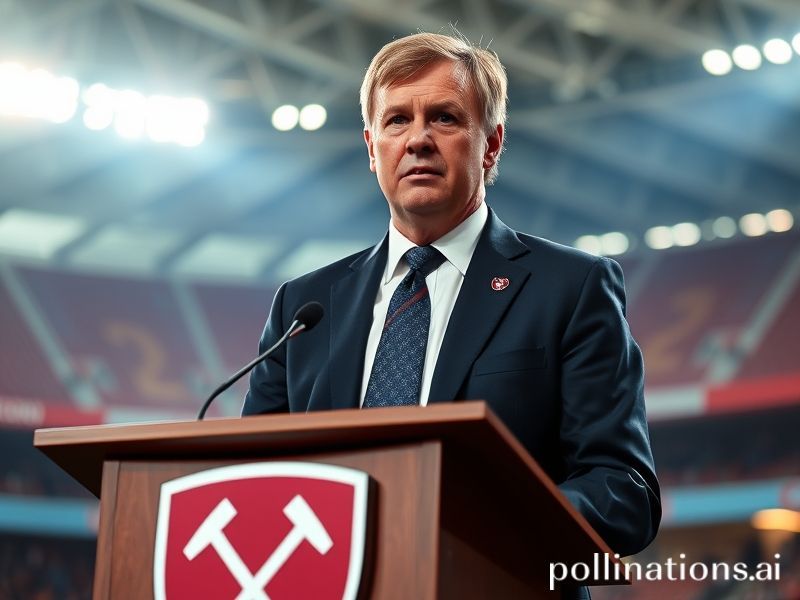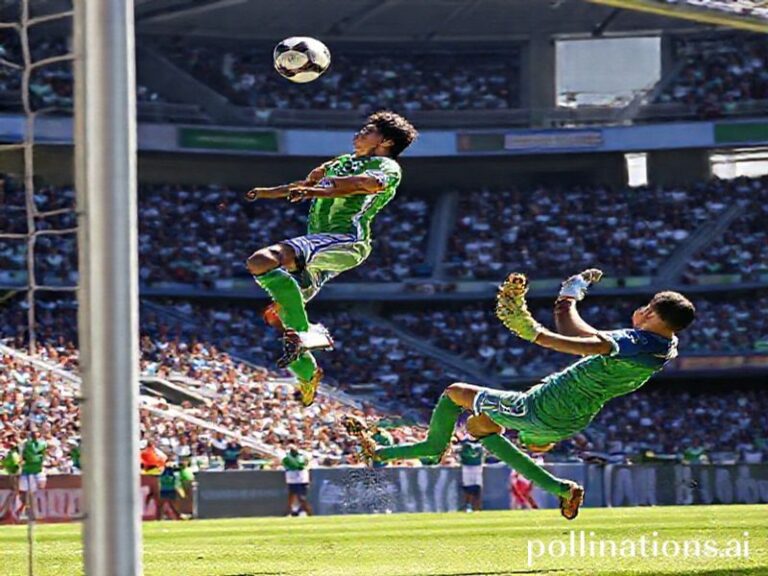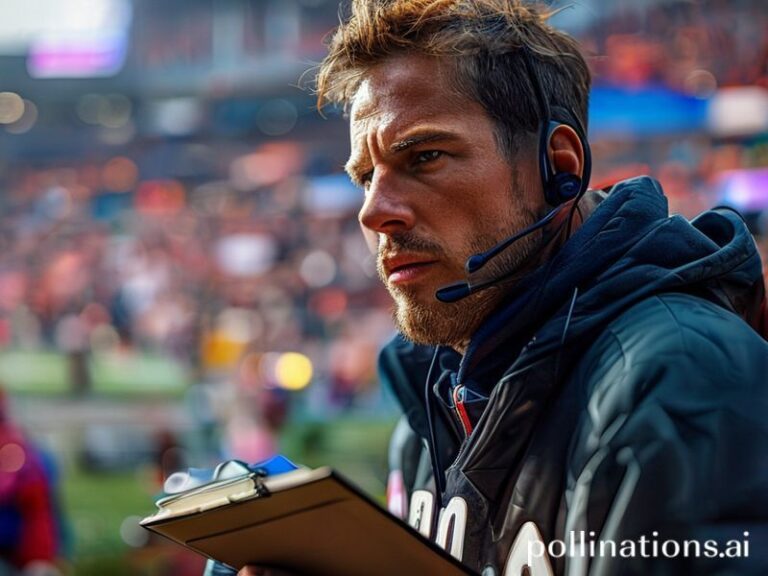Meet Richard Garlick: The Invisible Gatekeeper Controlling Football’s Billion-Dollar Merry-Go-Round
Richard Garlick: The Quiet Bureaucrat Who Decides if Your Club Can Afford That Brazilian Wonderkid
By Our Man in the Transfer Window, Still Nursing a €120m Hangover
LONDON – While the rest of us were perfecting sourdough and pretending to understand NFTs, Richard Garlick was quietly rewriting the rules of global soccer finance from a beige office near Heathrow. If the name rings no bells, congratulations: you’ve preserved your sanity. Yet the 54-year-old former solicitor from Wigan is now the single most powerful Briton in world football—think of him as the IMF managing director for the beautiful game, only with fewer press conferences and more spreadsheets detailing how Al-Ittihad plans to amortize a 29-year-old winger over four Islamic calendar years.
Garlick’s official title is “Director of Football Regulatory at FIFA.” Translation: he chairs the Players’ Status Committee, the panel that green-lights (or torpedoes) every international transfer worth more than a small Pacific island’s GDP. When a Saudi Pro League side wants to dump another £200 million into the market like a drunk sheikh at a Monte Carlo roulette table, Garlick’s inbox pings. When Chelsea decide to structure a nine-year contract for a teenager who still has GCSE coursework, the fax—yes, the game still runs on 1980s technology—lands on his desk. He is, in effect, the last credit-rating agency left standing after the Wild West of the 2010s, except his only weapon is a PDF and the threat of telling clubs to “please resubmit in compliance with Annexe 7, paragraph 3(b).”
The gig didn’t exist in its current form until 2021, when FIFA realised that allowing agents to negotiate transfers via WhatsApp voice notes might—hear me out—encourage creative accounting. Enter Garlick, fresh from a stint at the Premier League where he once explained to a Russian oligarch why shell companies in Cyprus couldn’t technically own a player’s left foot. His brief: enforce the newly tweaked Financial Fair Play rules, stop third-party ownership (the polite term for “human trafficking with added step-overs”), and prevent Europe’s elite from turning into Harlem Globetrotters franchises. Simple, right? Only the rest of the planet promptly discovered loopholes wider than the Suez Canal.
Take Saudi Arabia’s summer shopping spree. Garlick’s committee approved 94 percent of the deals, rejecting only the ones where the payment plan resembled a payday-loan brochure. Critics howled; Garlick shrugged. “Our mandate isn’t to stop money leaving Riyadh,” he told a Zurich seminar, “only to ensure the cheque doesn’t bounce before the player’s Benz hits the tarmac.” Cynics noted the same week FIFA announced a “strategic partnership” with the Saudi FA, but correlation is not causation—just ask any statistics undergraduate currently laundering data for a betting start-up.
Meanwhile, in South America, agents have started structuring transfers through Uruguayan agricultural co-operatives to exploit a trade treaty loophole. Garlick’s response was to hire two Montevideo-based accountants whose entire job is to Google Earth soybean fields that suspiciously look like 4-3-3 formations. “We are not anti-innovation,” he insists, “but if your left-back is technically a futures contract on frozen poultry, we will notice.”
The broader significance? In an era when nation-states treat clubs as geo-political mood rings, Garlick has become the closest thing football has to a supranational referee. He can’t stop Qatar from buying influence, or the Glazers from loading debt onto Manchester United like it’s a student with a liberal-arts degree, but he can delay visas, freeze registrations, and—most devastatingly—release a press statement. That may sound trivial until you remember the last time FIFA issued a “with immediate effect” communiqué, two Swiss prosecutors resigned and a CONCACAF president accidentally left a paper bag containing $70k in a Miami hotel lobby.
Human-rights groups want him to block transfers from regimes with colourful criminal codes. Club lobbyists want him to rubber-stamp everything short of literal money laundering. Garlick, who still takes the Tube to work, quotes the 2015 FIFA reform package like it’s the Magna Carta and sleeps with his BlackBerry on silent. “Football’s economy is now larger than Greece’s,” he sighs, eyes rimmed with the exhaustion of a man who’s read every variant of “creative accounting” from Bucharest to Beijing. “Our job is to stop it going the same way.”
So next time your team unveils a mysterious new striker at 2 a.m. on a Tuesday, spare a thought for the understated lawyer who spent six weeks making sure the player isn’t, legally speaking, a herd of cattle. Richard Garlick won’t lift the World Cup, but he might just prevent the sport from turning into an NFT marketplace with corner flags. In the current circus of global football, that counts as heroism—albeit the sort that ends with a quiet drink alone, wondering whether amortisation schedules are the only honest thing left on earth.







